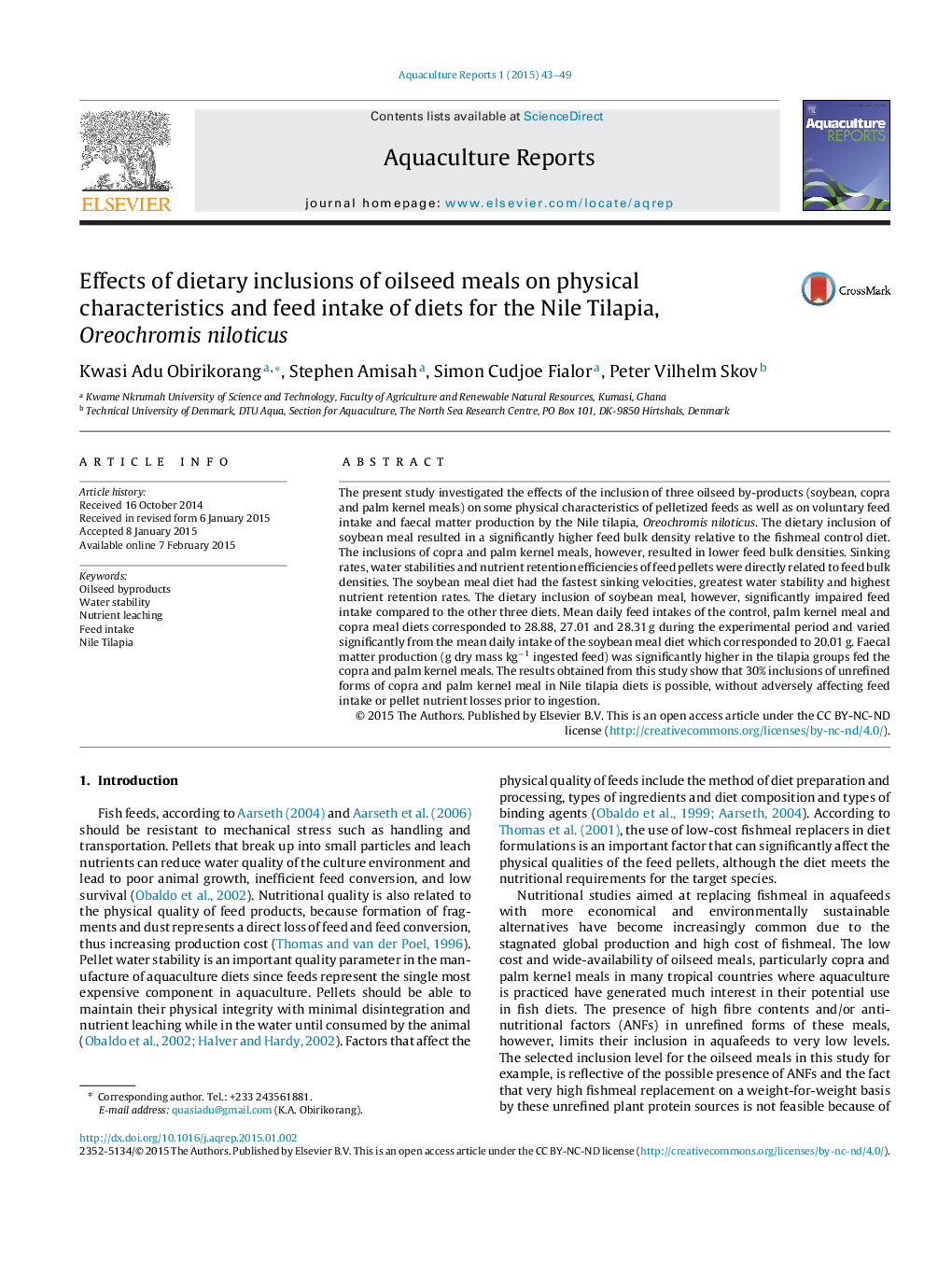| Article ID | Journal | Published Year | Pages | File Type |
|---|---|---|---|---|
| 4438031 | Aquaculture Reports | 2015 | 7 Pages |
•Soybean meal improves pellet water stability but reduces feed intake by O. niloticus.•Copra and palm kernel meals do not negatively affect feed intake of O. niloticus.•Prior treatments of copra and palm kernel meals to reduce their high fibre contents.
The present study investigated the effects of the inclusion of three oilseed by-products (soybean, copra and palm kernel meals) on some physical characteristics of pelletized feeds as well as on voluntary feed intake and faecal matter production by the Nile tilapia, Oreochromis niloticus. The dietary inclusion of soybean meal resulted in a significantly higher feed bulk density relative to the fishmeal control diet. The inclusions of copra and palm kernel meals, however, resulted in lower feed bulk densities. Sinking rates, water stabilities and nutrient retention efficiencies of feed pellets were directly related to feed bulk densities. The soybean meal diet had the fastest sinking velocities, greatest water stability and highest nutrient retention rates. The dietary inclusion of soybean meal, however, significantly impaired feed intake compared to the other three diets. Mean daily feed intakes of the control, palm kernel meal and copra meal diets corresponded to 28.88, 27.01 and 28.31 g during the experimental period and varied significantly from the mean daily intake of the soybean meal diet which corresponded to 20.01 g. Faecal matter production (g dry mass kg−1 ingested feed) was significantly higher in the tilapia groups fed the copra and palm kernel meals. The results obtained from this study show that 30% inclusions of unrefined forms of copra and palm kernel meal in Nile tilapia diets is possible, without adversely affecting feed intake or pellet nutrient losses prior to ingestion.
